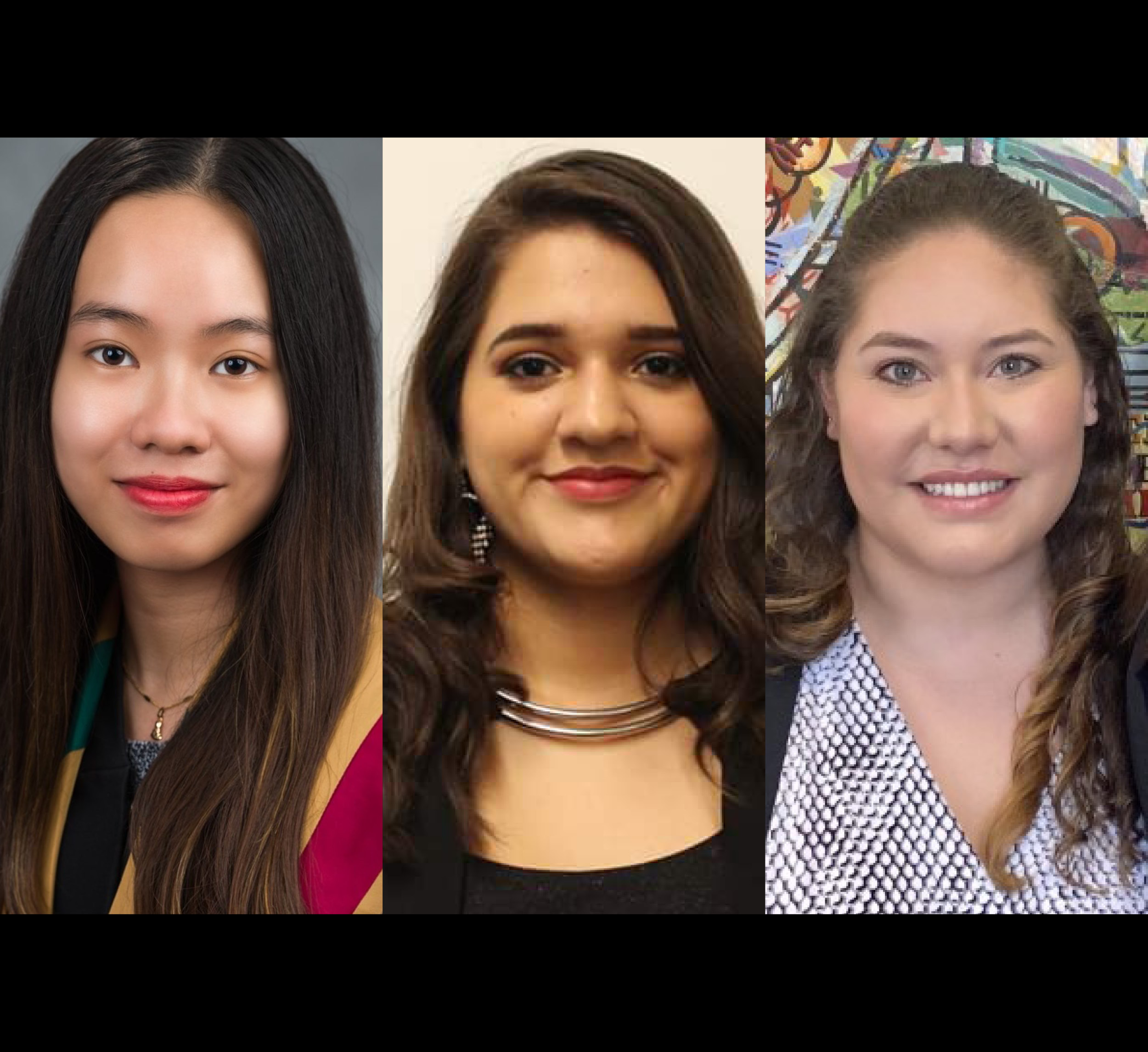
Three Economics students presented their research at the Atlantic Canada Economics Association (ACEA) Seminar Series.
Fourth-year students Maria Amalia Cordova, Fabiana Rosado, and Giao Dang presented their honours thesis research at the virtual conference that brought together Atlantic Canadian economists from academic institutions, government departments and agencies, and private sectors organizations.
“It was an incredible but intimidating experience. I was an undergraduate student presenting among scholars who have doctorates and master's degrees,” said Fabiana Rosado. “Presenting in a virtual setting was challenging since you can't see the reaction of your audience, but it was great practice for the future as the professors asked good questions and they were very encouraging of our research.”
Rosado’s paper focuses on the rate of female labour-force participation of immigrants from Latin America and the Caribbean in Canada.
Giao Dang and Maria Amalia Cordova each presented on the concept of “Brain Drain.” Dang’s paper re-examines the flow of immigrants and migrants into and out of Canada, whereas Cordova’s paper deals with brain drain in Atlantic Canada.
Dang says these types of experiential learning opportunities have been so valuable and have enhanced her student experience at St. Thomas.
“I chose the economics program at STU because it allows me to see economics in a different light, where not only numbers matter but also social and political factors,” she says.
“My professors encourage me to take part in research activities and enthusiastically advise me on graduate studies. I believe any student should take part in these events if they have a chance. What I have learned from preparing for the conference may be equivalent to material covered in a course.”
Dr. Fariba Solati from the Department of Economics is the honours thesis supervisor of the three presenters at the conference. She says sharing research at conferences builds confidence and gets students ready for graduate school.
“Even my brightest students feel terrified when I propose the idea of presenting their work at a conference. They often feel intimidated, or that their work is not good enough. However, through the process of working on the challenges of independent research and then the rewards of realizing they in fact can do it, my students flourish and find new confidence in their abilities as academics, which they take with them in their future careers or studies,” she says.
“It is a joy to watch my students grow and see them take on tough questions with such ease from academics twice their age. When I see them presenting their hard work at these conferences, it feels as though they have been doing this for a lifetime. It reminds me of why I love being a professor.”
/filters:format(webp)/prod01/stuca/media/stu/site-assets/images/features/Internship-Lauren-Feature.jpg)
/filters:format(webp)/prod01/stuca/media/stu/site-content/news/BEd.jpg)
/filters:format(webp)/prod01/stuca/media/stu/site-assets/images/features/map_system_news.jpg)